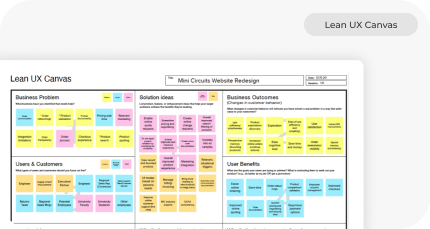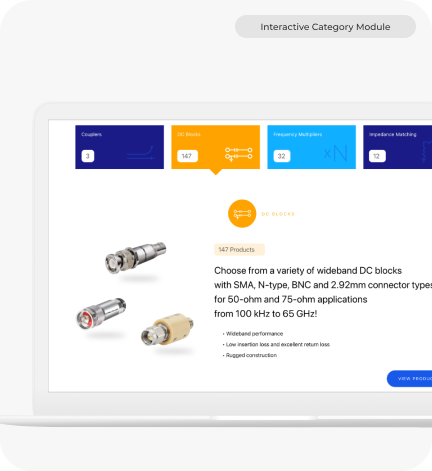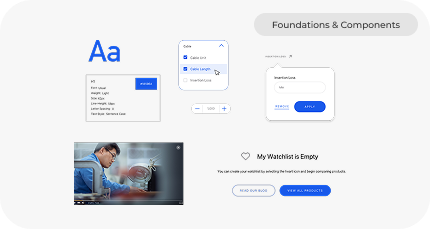Full case study ~5 min read
Responsive eCommerce Website I B2B I Hardware
Increased online orders and decreased support calls by streamlining complex products with systems thinking, modernizing the purchasing experience
Year
2021
Freelance
3 mths
Team
1 Product Manager (Client)
1 Sr. UX Designer (ME!)
2 Software Engineers
Methodologies
Human Centered Design
Systems Thinking
Content Strategy
Roadmap w/Design Sprints
Proto Persona Creation
Data Analytics Strategy
Design Systems
Tools
Sketch
Miro
InVision
Google Suite
Frameworks
Bootstrap
Problem
Mini-Circuits’ eCommerce experience was outdated, with an antiquated checkout process, poor user experience, and a cumbersome back-end architecture. Users struggled to find products and often resorted to calling customer service to make a purchase.
Business Goals
Modern UX/UI and tech stack
Empower users with online ordering and order transparency
Integration with marketing systems
Outcomes
Applied systems thinking to simplify complex products, we increased online orders, reduced support calls, and achieved significant cost savings.
Indirectly impacted the ERP system, and improved overall operational efficiency.
Solution
Lightmatter was tasked with designing a modern eCommerce experience that allowed users to easily purchase products, discover intelligent companion offerings, and elevate the Mini-Circuits brand.
Key Responsibilities
Research & Discovery: Conducted comprehensive user research including stakeholder interviews, data analysis, alignment workshops, proto persona creation, and cognitive walkthroughs to understand business goals and identify user experience problems.
Strategic Planning & Architecture: Developed comprehensive information architecture and sitemap for the new eCommerce experience, while creating a product-based content strategy and scalable data analytics framework. Established baseline success metrics focused on reducing support calls, increasing online orders, and improving customer satisfaction, then formulated three key hypotheses around user self-sufficiency, operational efficiency, and overall satisfaction to guide the design strategy.
Collaboration & Validation: Collaborated closely with Mini-Circuits' engineering team to validate designs within tight timelines, maintaining constant communication throughout the 3-month project duration and delivering comprehensive design specifications and module matrix to ensure smooth development handoff.
User Goals
Easy product discovery, exploration, and comparison
Streamlined checkout process
Transparency in ordering and billing
Self-sufficiency in managing orders












